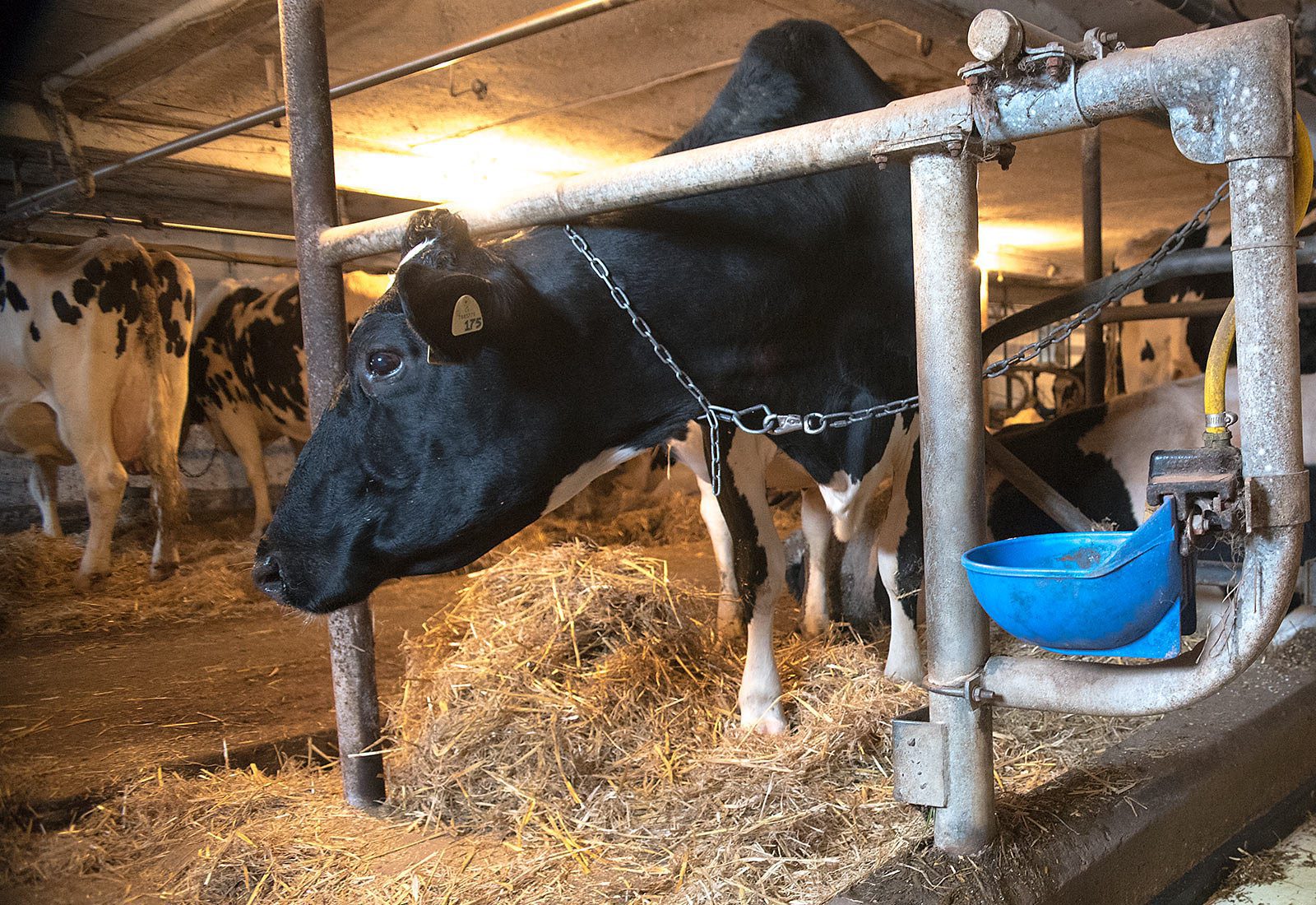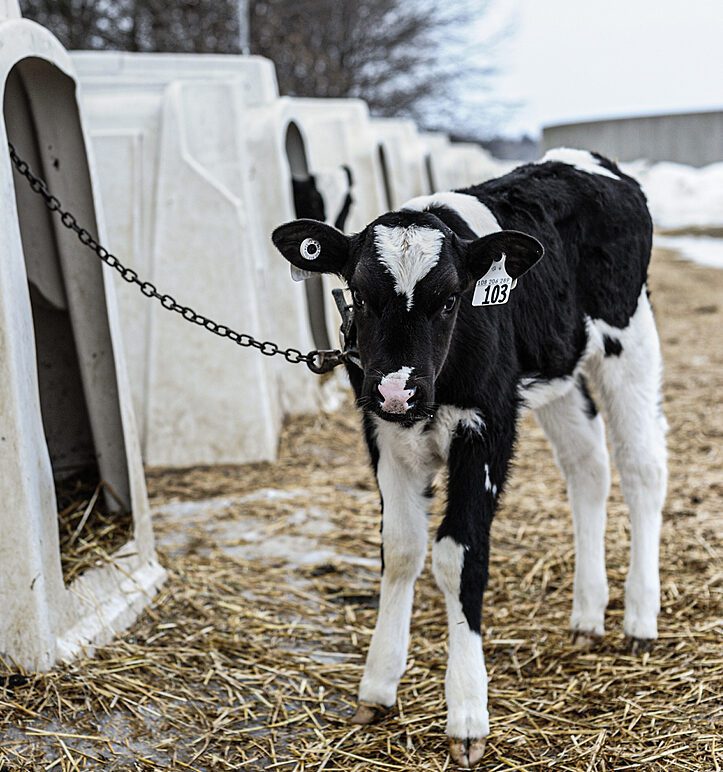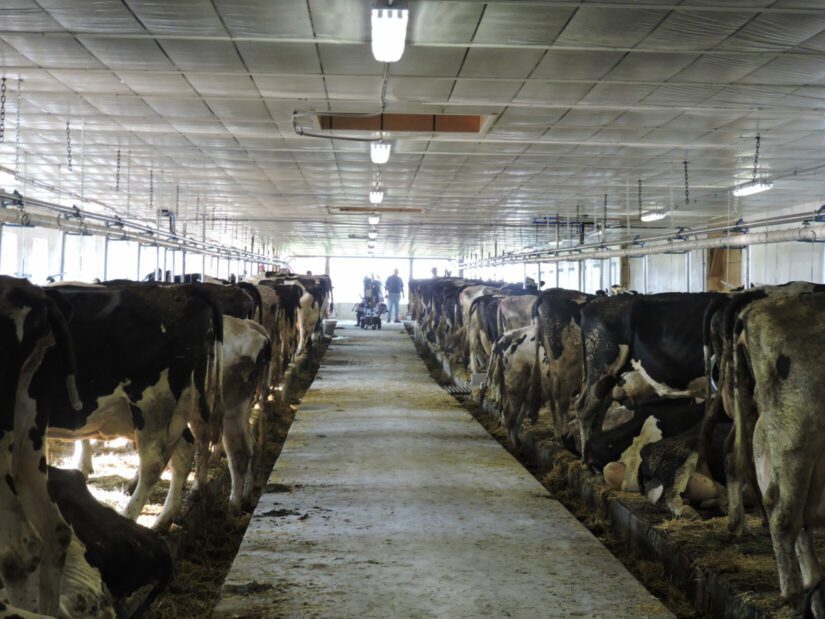Did you know that 1.4 million cows are raised for dairy production every year in Canada? For the first time since 2009, Canada’s Code of Practice for the Care and Handling of Dairy Cattle (PDF) is being updated and they want to know what you think. This Code sets out the minimum expectation of care for everyone who raises dairy cattle in Canada. The deadline for comments is January 27, 2022.

Emergencies on farms
The first thing that might come to mind for many is the heartbreaking situation during the November flooding. This draft of the Code was written before the floods, and the committee who wrote the Code is almost certainly now thinking of updating the emergency management section.
Lots of lessons were learned about how best to protect and evacuate farm animals in emergencies. This is an opportunity to take B.C.’s experience and share updated best practices for all dairy cows in Canada.
The BC SPCA will recommend that emergency management become a separate and full chapter to provide important information on preparing for the wide variety of emergencies that farms across Canada may face.
Housing
One of the key welfare issues facing dairy cattle is housing. As recently as 2015, almost 70% of cows in Canada were housed in tie-stalls, where cows are tied to one place in the barn for most of their life. They can stand up and lay down, but not walk around. Food is delivered to them and they are milked in their stall.
The good news is that 97% of cows in B.C. are housed in loose housing. It is time for the rest of Canada to catch up! Loose housing allows cows to move around the barn, with separate areas for resting, socializing, eating, drinking, and milking.
In 2018, over 60% of dairy calves in Canada were housed individually indoors in pens or outdoors in small plastic structures called hutches. It was thought that individually-housed calves were less likely to get sick, but research shows this is not true. In fact, research has shown group-housed calves grow up to be less fearful and better able to handle stressful experiences.

Outdoor access
Cattle are naturally social and motivated to graze, so access to pasture and outdoor space is very beneficial for cattle health and welfare. For this reason, it is important to encourage farmers to provide outdoor access for cows.
Take action
The BC SPCA will be advocating for all dairy cows and calves to have the freedom to move around and socialize with their herd, as well as be provided outdoor access.
What are your thoughts on how dairy cows are raised in Canada? Be sure to take a look at the draft Code (PDF) and submit your thoughts. You could help change the lives of Canadian cows for decades to come. The deadline for comments is January 27.

Tips for filling out the survey:
- Use your own words. Try not to copy and paste comments as these are less impactful.
- The survey includes highly detailed information about dairy farming. You can learn the basics of dairy farming in Canada here.
- You can choose which sections to comment on or just add your thoughts to the “general comments” at the end.
- To see a summary of the latest research on some key dairy welfare issues to help with your submission, go here. If you don’t have time to read the full report, check out the conclusions at the start of each chapter.
- Please be polite. Submissions that include derogatory or threatening language are not considered.
- If possible, suggest alternative wording or specific changes you want to see, and the reason you want the change.
- Here is a suggested format for a comment:
- “Add a requirement that states: ‘Calves must be housed in groups.’ Science demonstrates that there are many welfare benefits to group housing and there are no negative health impacts when group-housed calves are well-cared for.”
- Here is a suggested format for a comment:
